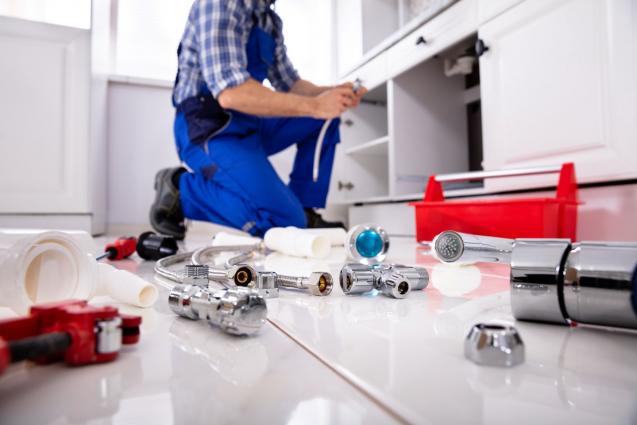
Effective Tips for Reducing Plumbing Costs in Your Home
This guide offers essential tips designed to help homeowners reduce their plumbing expenses. By implementing the strategies discussed, individuals can enjoy the numerous benefits of a well-maintained plumbing system, including fewer emergency repairs and more efficient water usage.
Regular Maintenance and Inspection
Regular maintenance and inspection play a significant role in preventing costly plumbing repairs. Consistent check-ups allow homeowners to catch issues early, saving substantial money in the long run.
To effectively inspect your plumbing system, begin by scrutinising pipes, faucets, and other fixtures for any signs of wear or leaks. Indicators of potential issues include damp spots on walls or ceilings, a sudden drop in water pressure, and an unusually high water bill. Identifying these signs early can prevent small problems from escalating into major repairs.
Moreover, maintaining a regular inspection schedule is crucial. Aim to inspect your plumbing system at least once a year, or more frequently if your home is older. Routine checks can significantly extend the life of your plumbing system and reduce the likelihood of emergency repairs.
DIY Minor Repairs
Many minor plumbing repairs can be managed by homeowners without needing to call a professional. This can lead to significant savings. Simple issues like leaky faucets and running toilets are often straightforward to fix.
For these DIY repairs, it’s essential to have the right tools and materials. Basic tools might include a wrench, pliers, plumber's tape, and a plunger. These can help with the most common issues that arise.
Addressing a leaky faucet, for example, typically involves replacing a worn-out washer or O-ring. To fix a running toilet, you might need to adjust the float or replace the flapper. Step-by-step guides for these fixes can be found online, providing easy-to-follow instructions for homeowners.
However, knowing when to tackle a repair yourself and when to call a professional is crucial. If a problem seems complex or there’s a risk of causing further damage, it's best to seek professional help.
Water Efficiency Upgrades
Upgrading to water-efficient fixtures and appliances is another excellent way to reduce plumbing expenses. These upgrades not only lower water usage but also contribute to long-term savings on utility bills.
Installing low-flow toilets, showerheads, and faucets can drastically reduce the amount of water your household uses daily. These fixtures maintain performance while using significantly less water than traditional models.
When selecting a new water heater, consider energy-efficient models. These heaters are designed to use less energy, which can lead to substantial savings over time.
While the initial cost of these upgrades may be higher, the long-term savings on water and energy bills make them a wise investment. Over time, the reduced utility costs can offset the initial expenditure, leaving homeowners with more money in their pockets.
Preventing Pipe Freezing
In colder climates, preventing pipe freezing is critical to avoid costly repairs. Frozen pipes can burst, leading to significant water damage and expensive fixes.
To prevent your pipes from freezing, ensure they are properly insulated. Pipe insulation can be purchased at most hardware stores and is relatively easy to install.
Maintaining adequate indoor temperatures during winter months is equally important. Keeping your home warm ensures that the pipes do not reach freezing temperatures. If you plan to be away during a cold snap, be sure to leave your heating on at a low level.
During periods of extreme cold, simple measures such as allowing faucets to drip slightly can keep water moving through the pipes, reducing the risk of freezing.
Understanding the cost implications of burst pipes highlights the importance of these preventive measures. The expense of dealing with burst pipes can be significant, far outweighing the costs of prevention.
Proper Drain Use and Maintenance
Educating household members about proper drain use can prevent many common plumbing issues. Understanding what should and shouldn’t go down the drains can avert clogs and other problems.
Avoid pouring grease, coffee grounds, and large food particles down the kitchen sink. In bathrooms, be mindful not to flush items like wipes, paper towels, or feminine hygiene products, as these can cause serious blockages.
Regular maintenance can help keep drains clear and clog-free. Natural solutions, such as a mixture of vinegar and baking soda, can often clear minor clogs without the use of harsh chemicals. For monthly maintenance, pour a pot of boiling water down each drain to help clear any build-up.
Should you encounter a minor clog that natural solutions can’t fix, there are chemical drain cleaners available. However, use these sparingly, as frequent use can damage pipes over time.
Incorporating such preventive practices not only extends the life of your plumbing but also helps in reducing your plumbing expenses over time. Simple, proactive measures like these can save homeowners from facing more significant, expensive repairs down the road.
Conclusion
In summary, several effective strategies can help homeowners reduce their plumbing expenses. Regular inspections and maintenance, DIY minor repairs, water efficiency upgrades, preventing pipe freezing, and proper drain use and maintenance are all critical steps.
Taking proactive steps in caring for home plumbing systems not only reduces the need for costly repairs but can also lead to impressive long-term financial benefits. By implementing these cost-saving techniques, homeowners can enjoy a reliable and efficient plumbing system while keeping expenses in check.
Homeowners are encouraged to adopt these strategies to protect their plumbing systems, ensure smooth operation, and maximise their financial savings.



